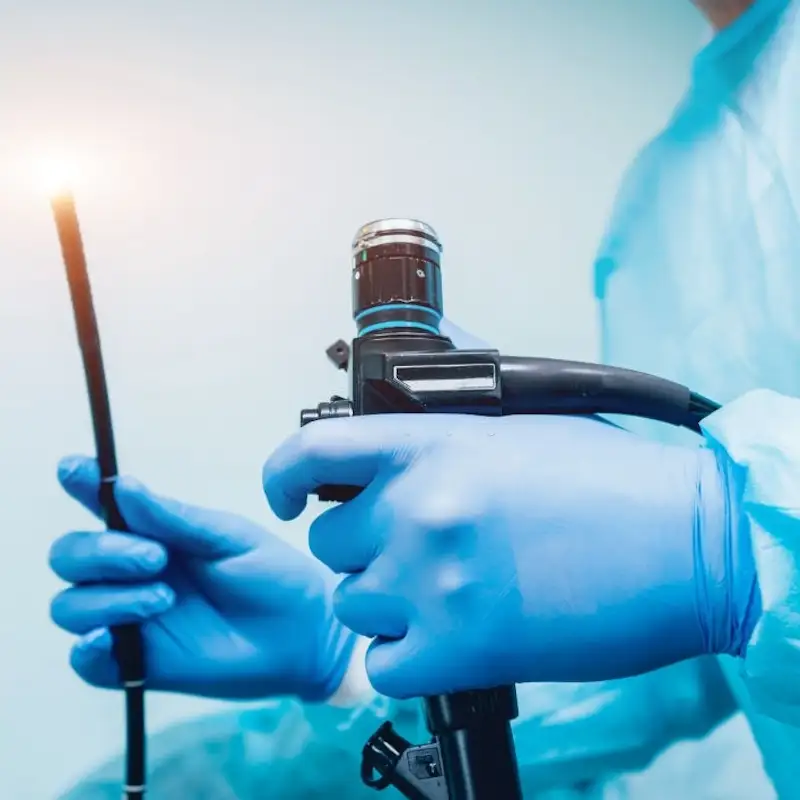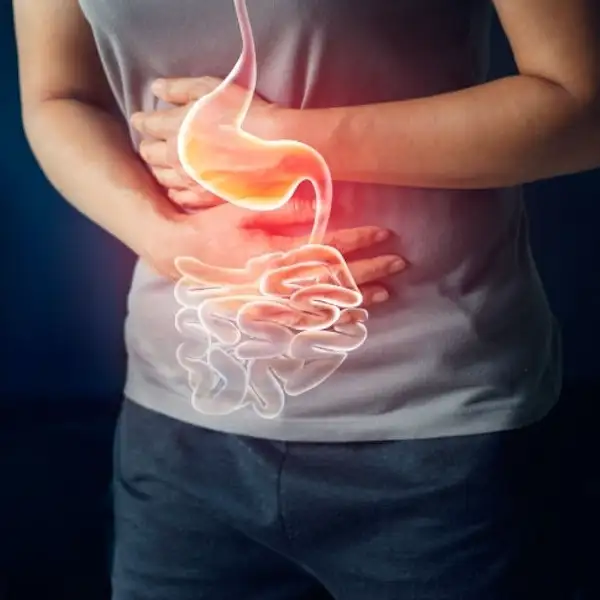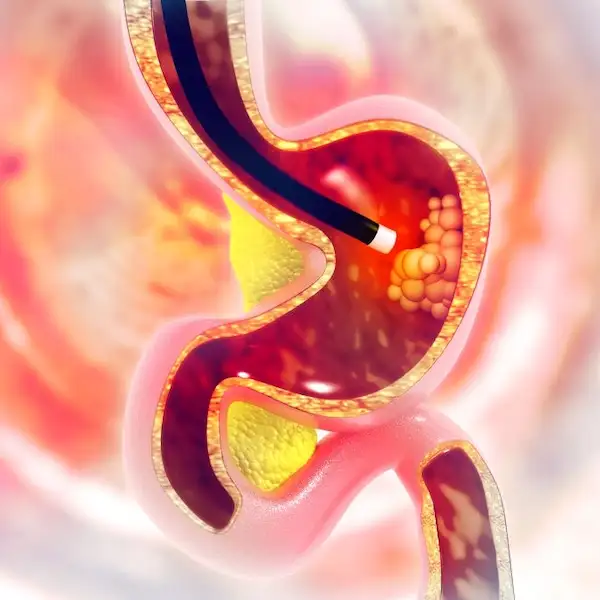Endoscopic Retrograde Cholangiopancreatogram (ERCP)
An endoscopic retrograde cholangiopancreatogram (ERCP) is a test that combines the use of a flexible, lighted scope (endoscope) with X-ray pictures to examine the tubes that drain the liver, gallbladder, and pancreas.
The endoscope is inserted through the mouth and gently moved down the throat into the esophagus, stomach, and duodenum until it reaches the point where the ducts from the pancreas (pancreatic ducts) and gallbladder (bile ducts) drain into the duodenum.
ERCP can treat certain problems found during the test. If an abnormal growth is seen, an instrument can be inserted through the endoscope to obtain a sample of the tissue for further testing (biopsy). If a gallstone is present in the common bile duct, the doctor can sometimes remove the stone with instruments inserted through the endoscope. A narrowed bile duct can be opened by inserting a small wire mesh or plastic tube (called a stent) through the endoscope and into the duct.
Why is an ERCP Performed?
ERCP is done to:
- Check persistent abdominal pain or jaundice.
- Find gallstones or diseases of the liver, bile ducts, or pancreas.
- Remove gallstones from the common bile duct if they are causing a problem such as a blockage (obstruction), inflammation or infection of the common bile duct (cholangitis), or pancreatitis.
- Open a narrowed bile duct or insert a drain.
- Get a tissue sample for further testing (biopsy).
How To Prepare
Do not eat or drink for 8 hours before having the test.
Tell your doctor if you:
- Have hay fever, hives, food or medication allergies, or asthma.
- Are allergic to shellfish (shrimp, scallops, lobster), the iodine used in the contrast material for X-ray tests, or any other substance that contains iodine.
- Have had a digestive tract study that used barium, such as a barium enema, within the last week.
- Are taking blood-thinning medicines, such as aspirin or warfarin (Coumadin).
You will be asked to empty your bladder and remove any dentures, jewelry, or contact lenses before having an ERCP.
How It Is Done
An endoscopic retrograde cholangiopancreatogram (ERCP) is done by a doctor trained in endoscopy, usually a doctor who specializes in diseases of the digestive system (gastroenterologist). A thin, flexible fiber-optic endoscope is used.
ERCP is done in the hospital. You may have to stay overnight if your doctor removes gallstones or places a stent during the test. Otherwise, you will be allowed to go home after the test.
An ERCP usually takes between 30 and 60 minutes. You will be in the recovery room 1 to 2 hours.


